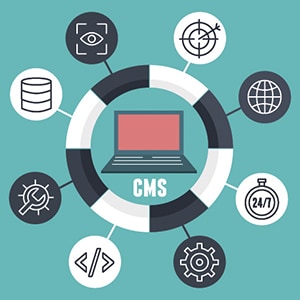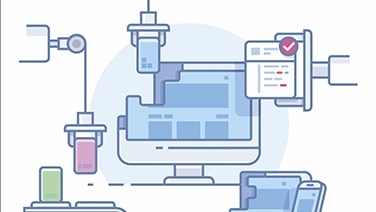CMS selection: which engine to choose for the site
 At the initial stage of creating the site, we discuss with the client a number of issues, one of which is the choice of CMS. The choice of engine for the site is quite difficult. Today, a dozen free (and even more paid) systems have been developed, which, in their structure and capabilities, are practically identical and differ only in small nuances. To save time for customers to search for the answer which engine to choose for the site and to please their readers with a fascinating and useful article in their blog, we decided to raise the topic of CMS and put it “on the shelves”.
At the initial stage of creating the site, we discuss with the client a number of issues, one of which is the choice of CMS. The choice of engine for the site is quite difficult. Today, a dozen free (and even more paid) systems have been developed, which, in their structure and capabilities, are practically identical and differ only in small nuances. To save time for customers to search for the answer which engine to choose for the site and to please their readers with a fascinating and useful article in their blog, we decided to raise the topic of CMS and put it “on the shelves”.
What is a CMS?
What is CMS from the very beginning. If you are one of those who are not familiar with this American abbreviation, you probably want to know what it means and why you need this system.
CMS (Content Management System) is a content management system. Simply put, this is the heart of the site, with which you can post, add, edit and manage information on the site and access to it. The engine helps to organize all the content, depending on its placement on the pages. In addition, a CMS is an ideal way to simultaneously include several employees who perform various jobs: a content manager, a copywriter, SEO specialists, etc.
This system includes a number of features. With its help, you can not only create pages and entire product catalogs, write specifications, but also post video and audio files. In short, this is a multifunctional site editor.
Which CMS is better: paid or free?
In connection with the popularization of CMS, many developers write their engines and sell them. Turning to them, you can hear a whole list of the advantages of their creation, they say, their engine is so cool that it’s about to start cooking borscht. In fact, a paid CMS differs from a free one only by more advanced functionality and is not always and often only in a certain direction, therefore it is better suited for solving certain tasks. But at the same time it cannot be said that a free CMS will not help you to achieve your goals. She is fully capable of competing with paid versions and staying only half a step behind. Therefore, if your goal is to order an uncomplicated website, then choosing a free CMS is a wise and economical solution.
How to choose a functional engine for the site
Each developer of the engine, regardless of whether it is paid or not, speaks about its multifunctionality. For an inexperienced person it is difficult to objectively evaluate which is better to choose a CMS for his site. Therefore, before an affirmative decision, evaluate several important criteria that the CMS must meet.
Convenient and easy content editing
Once you have abandoned the HTML code, it is logical that you want convenience and simplicity in editing the content. Therefore, the engine should allow you to instantly publish and change content using buttons that are understandable at a primitive level, and so it means to have a WYSIWYG interface (What you get is what you get, and you will get it)
Editing content in Joomla
SEO + CMS = friendship
Here we are talking about a set of characteristics and functions that allow you to adapt the site to the requirements of search engines. Of course, all CMS are SEO-friendly, but you need to objectively evaluate whether this is enough for a successful website promotion.
Content Customization
Each control system allows you to quickly publish pages, texts, etc. The main thing in choosing a CMS is to understand whether it will be able to correctly customize content for Central Asia requests. For example, if you are developing an online store, you should be able to add product cards. If you keep an informational blog, the engine should publish new posts on the page.
Access level to other users
It would be nice if your regular customers had additional features. For example, a separate closed group for communication and discussion. Or the ability of moderators in limited access to edit this or that page. If you plan to create such functions on your website, the CMS is required to allow it.
The most popular site engines. TOP 3 best free CMS
We cannot unequivocally say which engine is better, because its choice depends on specific needs. But our experience and popularity in the application of systems allowed us to distinguish the top three.
WordPress
This CMS has emerged as a blog platform and over time has received the development of the functional, and with it the popularity. Today, WordPress is used to create all types of sites: from blogs to large commercial Internet projects.
Pros:
The most popular engine. Since it is most often used, it indicates its functionality and convenience;
A very wide range of plugins for different types of sites;
There is a WYSIWYG interface type that will make it easier to work with HTML markup;
Does not require experience in work and special knowledge.
Minuses:
Due to the huge set of plug-ins, it is necessary to choose the right settings to get the convenience and the ability to use only what is necessary for the site;
If you are new, you may encounter installation problems.




